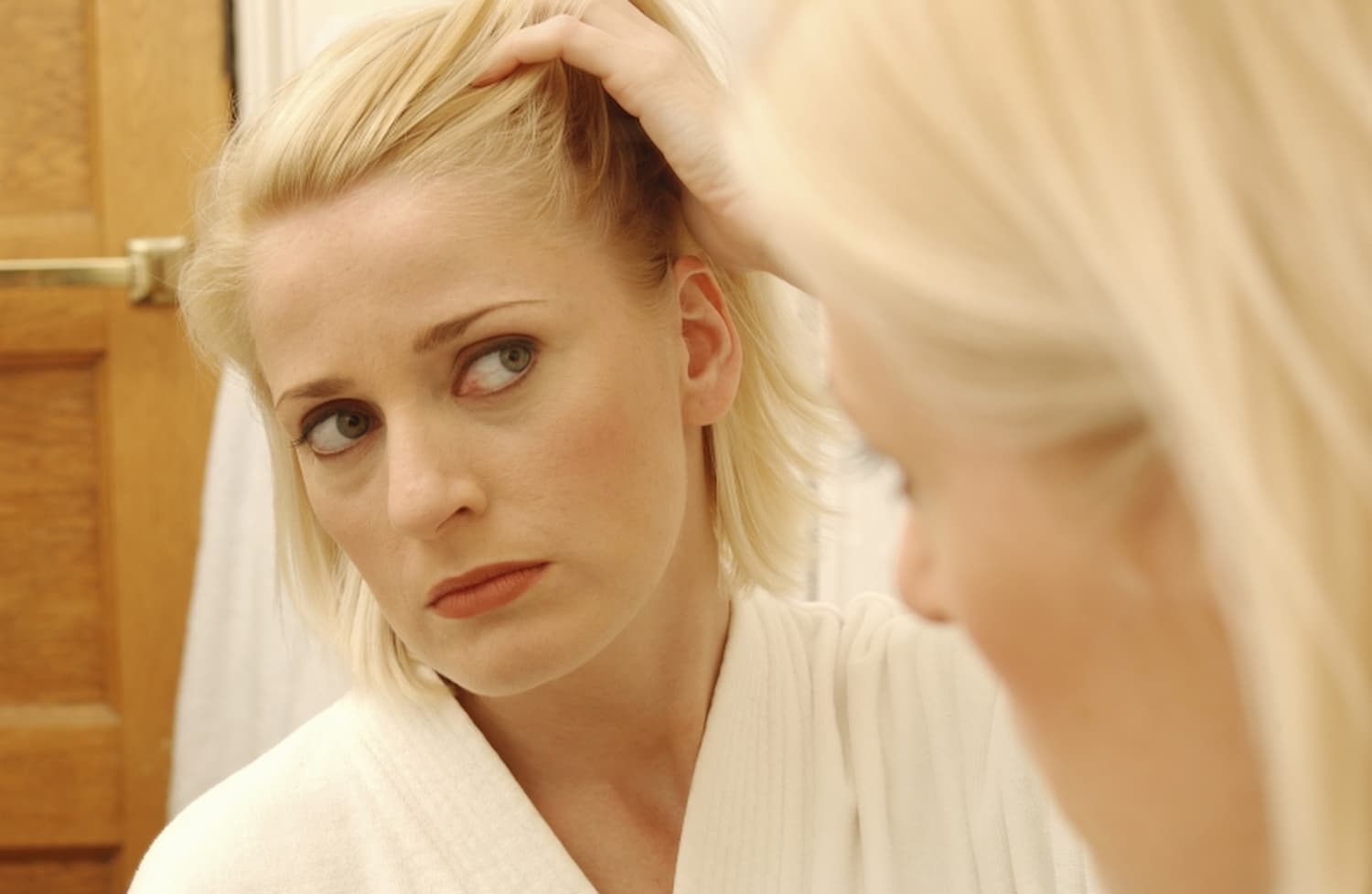
While there is unfortunately no cure for alopecia, there are some natural treatments which may temporarily aid hair growth. In this article, we explore a few of these and investigate their effectiveness.
What is Alopecia?
Alopecia is the medical term for hair loss, which can affect both men and women at any age. It’s believed that alopecia is genetic and is caused by changes in the hair’s natural growth resulting from damage to hair follicles. Several factors can influence hair follicle health, including stress, anxiety, thyroid disease, certain medications, or a hormonal imbalance.
There are several classifications of alopecia. Alopecia areata refers to patchy hair loss caused by an autoimmune condition; androgenetic alopecia is caused by high levels of testosterone and is characterised by a defined pattern of hair loss; and alopecia totalis is where all the scalp hair falls out. When a large percentage of hair is in the telogen phase, or resting phase, of the hair growth cycle, it results in hair thinning and falling out, which is one of the most common symptoms of alopecia. Other telltale signs include extensive hair loss, scalp itchiness and scalp redness.
The causes of alopecia are not fully understood, but it is thought to be caused by a combination of genetic and environmental factors. In some cases, alopecia may be caused by an infection or autoimmune disease. Alopecia can also be a side effect of certain medications or medical conditions.
Conventional Treatments
If you present to a doctor with alopecia, he or she will most likely prescribe one of several drugs, such as anti-inflammatories or psoriasis medication. Other medications include topical sensitisers, which cause an allergic reaction to prompt hair growth. A hair loss treatment is determined by the result of diagnostic tests, which usually include blood tests, a review of family history and a scalp biopsy.
However, conventional medicine can’t cure alopecia, which is why many people turn to natural treatments to help with hair regrowth.
Natural Treatments for Alopecia
There are a number of natural therapies that can be effective for treating alopecia. The following natural therapies have been reported to support natural hair growth:
- Acupuncture involves the insertion of fine needles into different acupoints on the body to stimulate hair follicle growth and improve hair thickness.
- Meditation is thought to reduce stress and promote relaxation. This can help to improve the symptoms of alopecia.
- Reiki is a type of energy healing that has been shown to be effective for treating alopecia. It helps to promote balance and harmony in the body and can help to reduce inflammation and stimulate healthy hair growth. When used in combination with other natural therapies, Reiki may be helpful for treating alopecia.
- Thought field therapy is a type of energy therapy that can be used to treat a variety of conditions, including alopecia. It uses a technique called tapping or acupressure to help clear the mind and body of any negative thoughts or emotions that may be contributing to the condition.
- Aromatherapy is a type of natural therapy that uses essential oils to treat various conditions. Essential oils can be applied to the scalp or inhaled to help improve the symptoms of alopecia. Some essential oils that may be helpful for treating alopecia include lavender, rosemary, clary sage and thyme. These oils help to improve blood circulation to the scalp and reduce inflammation, leading to a significant improvement in hair growth.
Source: D. Barkley
- Traditional Chinese Medicine is a holistic system of medicine that encompasses a variety of healing modalities that can help in the treatment of hair loss. Aside from acupuncture, dietary therapy and Chinese herbs like ginseng, licorice root and Wu Wei Zin, or Five-Flavour Berry, which increase blood flow to the scalp and strengthen hair shafts, have been found to be effective treatments for alopecia.
At this time, there have been no trials to prove the effectiveness of such treatments. So, while they may help some people with alopecia, they may make hair loss worse in others. That’s why it’s a good idea to consult with a natural health practitioner or health professional before embarking on a treatment plan.
That being said, the Australia Alopecia Areata Foundation recommends the following solutions to provide relief and ease the discomfort associated with the condition:
- Wear sunscreen on exposed skin
- If your eyebrow hair or eyelashes have fallen out, wear sunglasses to protect your eyes and facial skin
- Wear a hat, wig or scarf to shield your scalp from harsh UV light
It may take some time for natural therapies to show results in treating alopecia, but many people find that a combination of different therapies yields good results. It is important to be patient and continue with the therapy until full results are achieved. If alopecia is caused by an underlying condition, then treatment of that condition will also be necessary.
Originally published on Jul 28, 2014








